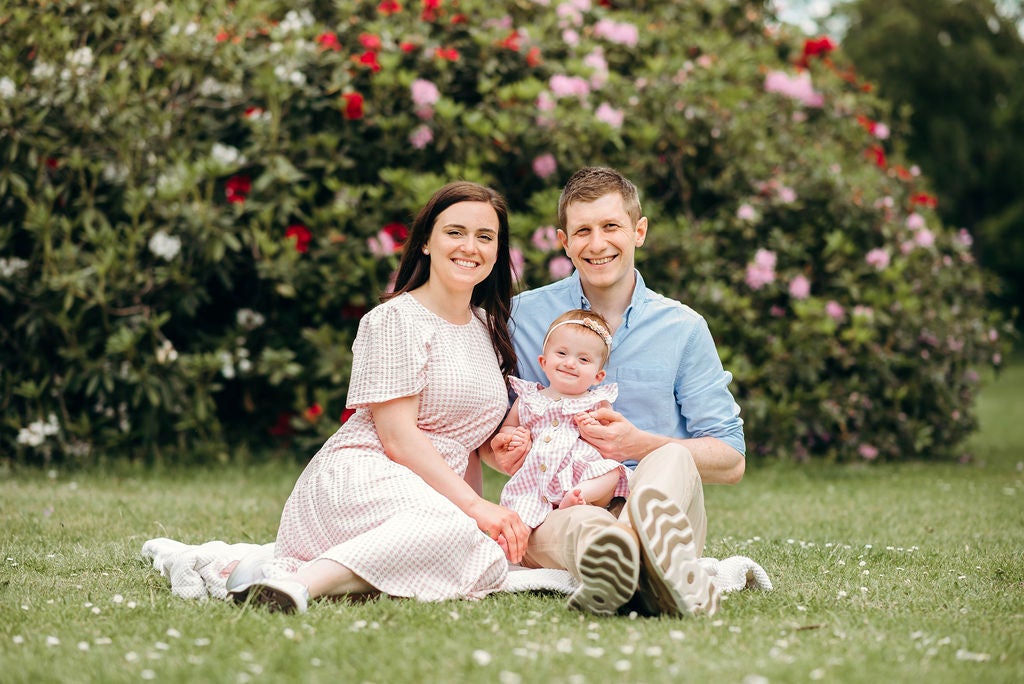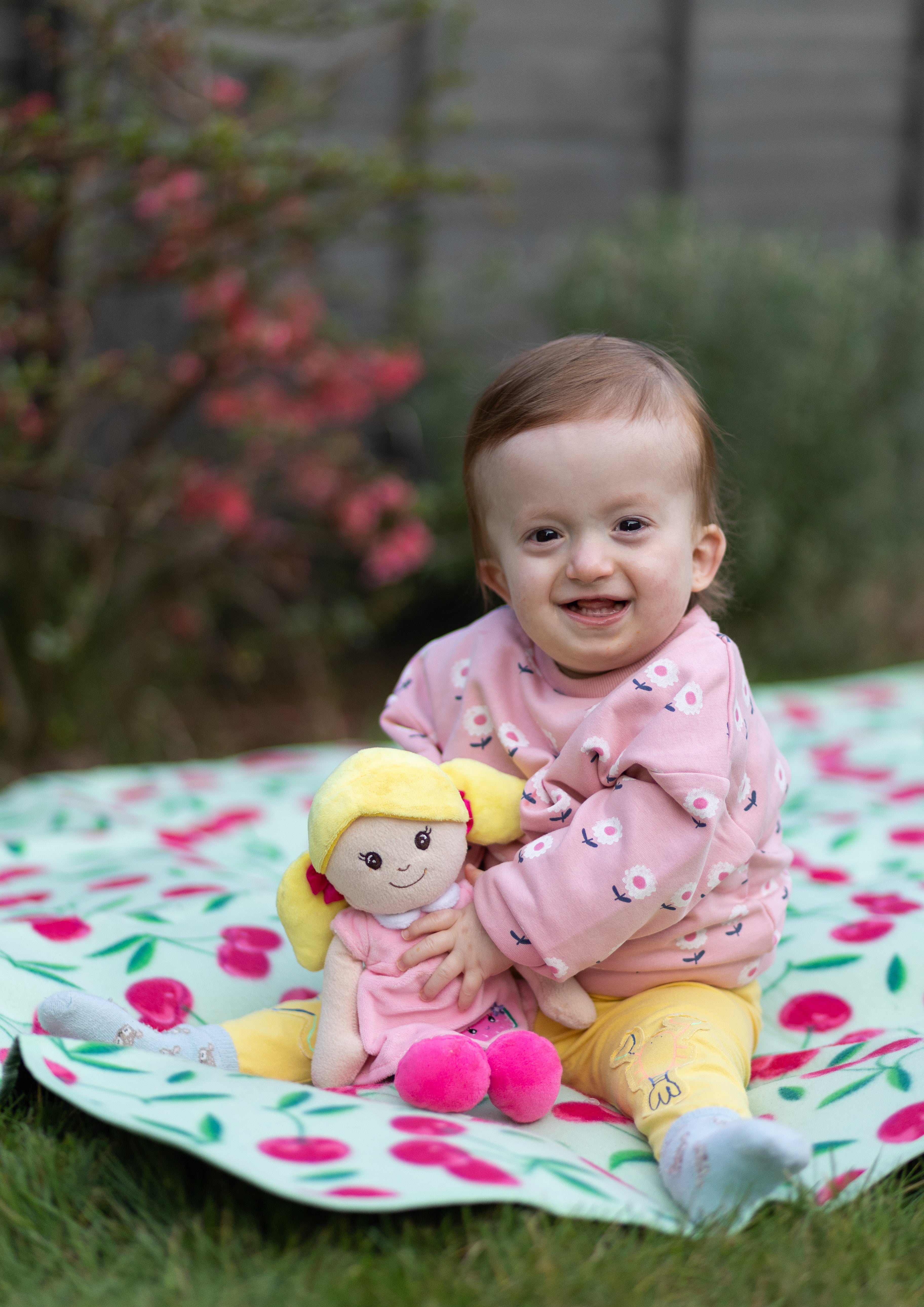
Thousands of people now know the cause of their rare genetic condition because of a major UK study that has so far discovered around 60 new disorders.
More than 13,500 families across the UK and Ireland were recruited to the Deciphering Developmental Disorders (DDD) study, which was conducted over 10 years in the UK and Ireland.
The study specialises in analysing genetic code, with children and parents having their DNA analysed in their hunt for a diagnosis, which can give families answers and lead to better care.
All the families had children with a severe developmental disorder, which was undiagnosed despite prior testing through their national health service.
While the disorders are rare, the thousands of different genetic disorders taken collectively affect one in every 17 people in the country.

So far, researchers have been able to provide genetic diagnoses for around 5,500 children, but the search is still ongoing.
Among them is two-year-old Sofia Brogden, who was recruited to the DDD study and received a diagnosis when she was just one month old, while still in neonatal care.
She was diagnosed with Turnpenny-Fry syndrome, a rare genetic condition that causes learning difficulties, impaired growth, and distinctive facial features that include a large forehead and sparse hair. Other common issues include feeding problems, severe constipation, as well as issues in the brain, heart, and bones.
Turnpenny-Fry syndrome is caused by mutations in the PCGF2 gene.

Sofia, who lives with her parents Dasha and Carl in Oxfordshire, was born five weeks early and spent nearly three months at the neonatal care unit at John Radcliffe Hospital in Oxford.
Mrs Brogden, 34, said having an early diagnosis helped her understand what to expect. She said: “We were given a leaflet based on the experiences of other families, and through that, we knew she would need physiotherapy and occupational therapy. We learned that Sofia may have heart conditions, and a heart scan revealed that she needed surgery.
“She had a heart operation at two months old, and after that, she really started to make good progress, and we were able to take her home from the hospital.”
In the study, the genomes – the complete set of genetic material – of the children and their parents were sequenced by The Wellcome Sanger Institute.
The findings, published in the New England Journal of Medicine, showed around three-quarters of the conditions were caused by spontaneous mutations not inherited from either parent.
Lead author Caroline Wright, professor of Genomic Medicine at the University of Exeter, said: “We found thousands of diagnoses in more than 800 known conditions, and the study itself also discovered around 60 new conditions. These included conditions caused by rare changes in genes such as ADNP, POGZ, DDX3X, PURA and many others.”
Prof Wright added: “Getting the right diagnosis is absolutely critical for families with rare conditions, which collectively affect around 1 in 17 people. Most of these conditions are genetic and can be diagnosed using the same genomic sequencing technology.
“The families in our study were desperate for answers, which can make a huge difference to clinical management and quality of life. We worked with hundreds of clinicians and scientists, as well as thousands of patients to try to find those answers. By sharing our findings, many more families in the future should get answers faster.”
Jessica Fisher was given a diagnosis for her son Mungo’s rare genetic disorder when he was 18. Like Sofia, Mungo also has Turnpenny-Fry syndrome, which was discovered in 2015.
Mrs Fisher, 59, from St Austell in Cornwall, had been through years of uncertainty, not knowing how her son’s development would unfold.
Following Mungo’s diagnosis, she found comfort in being connected with another family, and forming a Facebook support group.
She said: “When I first saw a picture emailed to me of the other family’s child it was really emotional. We’d always looked around for children who might look like Mungo – and here was a child in Australia who could have been his sibling.
“For a few months it was just us two families, but then it slowly started to grow. We now have families from countries including America, Brazil, Croatia, Indonesia… it’s devastating to learn that your child has a rare genetic disorder, but getting the diagnosis has been key to bringing us together.”
Mrs Brogden, who is also a part of this support group, said: “We’re also incredibly grateful to be part of this community. Very few people are living through this experience, and it feels like Jessica and Mungo are like family to us. It’s invaluable, and it’s only been possible because they took part in the study and got a diagnosis, which is now helping others to get there much faster.”
A collaboration between the NHS and the Wellcome Sanger Institute, the research was funded by Wellcome and the Department of Health and Social Care, and supported by the National Institute for Health and Care Research.
Health Minister Will Quince said: “We’re creating the most advanced genomic healthcare system in the world and this study is yet another step forward to revolutionising care for NHS patients. Using cutting edge, high-tech methods such as this offers the potential to better understand and more accurately diagnose rare genetic conditions so children can access treatment faster and potentially limit the impact of the disease on their life.”







